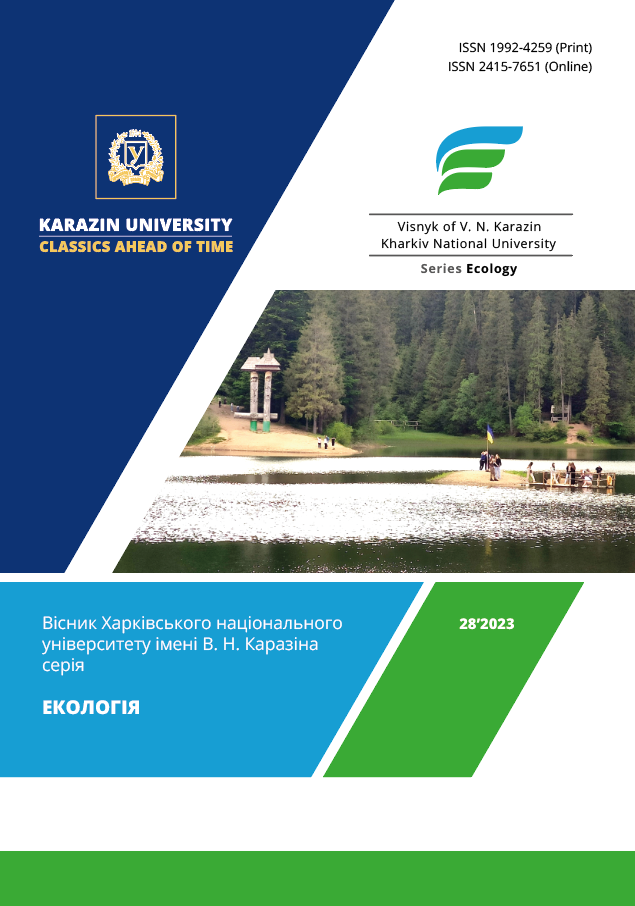Hospitality and sustainable development: synergy for a successful tourism sector
Abstract
Purpose. This scientific article aims to explore the relationship between hospitality and sustainable development and uncover the potential synergy of these two concepts for achieving a successful tourism sector.
Results. There are focuses on the following aspects: sociocultural interaction with local communities, ecological sustainability, economic development, and ensuring a quality experience for tourists. A conducted study has revealed that hospitality and sustainable development are closely interconnected and mutually influential, contributing to the positive growth of the tourism industry. Hospitality creates a pleasant and cozy atmosphere for visitors, enhancing their enjoyment of the journey and encouraging repeat visits. At the same time, sustainable development promotes the conservation of natural and cultural resources, reduces negative environmental impacts, and supports the local economy. It has been established that the positive and fruitful interaction between hospitality and sustainable development has beneficial effects on various aspects of the tourism sector, including the profitability of tourism enterprises, the rational use of resources, the reduction of negative ecological impacts, and the enhancement of tourist satisfaction and loyalty. A successful combination of hospitality and sustainable development enhances the competitiveness of the tourism sector, contributes to its growth, and helps preserve natural and cultural values for future generations. The successful integration of hospitality and sustainable development can bring benefits to both tourists and local communities, as well as to the natural environment.
Conclusions. Hospitality and sustainable development can be crucial factors for success in the tourism industry. The interaction between these two concepts enables the development of innovative approaches to tourism, taking into account the needs of tourists and the principles of sustainable development, while also fostering the creation of a sustainable tourism product.
Downloads
References
United Nations World Tourism Organization (UNWTO). Retrieved from http://www2.unwto.org/
Sustaining Tourism. Retrieved from https://sustainabletourism.net/
Joshua, J. B., Jin, Y., Ogunmokun, O. A. & Ikhide, J. E. (2023). Hospitality for sustainability: employee eco-anxiety and employee green behaviors in green restaurants. Journal of Sustainable Tourism, 31(6), 1356-1372. https://doi.org/10.1080/09669582.2022.2043877
López-Gamero, M., Pereira-Moliner, J., Molina-Azorín, J. F., Tarí J. J. & Pertusa-Ortega E. M. (2023). Human resource management as an internal antecedent of environmental management: a joint analysis with competitive consequences in the hotel industry. Journal of Sustainable Tourism, 31(6), 1293-1314 . https://doi.org/10.1080/09669582.2020.1841216
Bianco S., Bernard Sh., & Singal M. (2023). The impact of sustainability certifications on performance and competitive action in hotels. International Journal of Hospitality Management,108(January ), 103379. https://doi.org/10.1016/j.ijhm.2022.103379
The International Ecotourism Society (TIES). Retrieved from https://www.ecotourism.org/
Zheng, X., Huang, J., Wu, J., Sun, Sh,, Wang Sh, (2023). cEmerging trends in online reviews research in hospitality and tourism: A scientometric update (2000−2020). Tourism Management Perspectives, 47(June), 101105. https://doi.org/10.1016/j.tmp.2023.101105
Global Sustainable Tourism Council (GSTC). Retrieved from https://www.gstcouncil.org/
Moorhouse, T., & Fennell, D. (Eds.). (2023). Sustainability Dimensions of Wildlife Tourism: Welfare, conservation, practices, and impacts. Journal of Sustainable Tourism, 31(5). Retrieved from https://www.tandfonline.com/toc/rsus20/31/5?nav=tocList
LEED rating system. Retrieved from https://www.usgbc.org/leed
Green Globe. The Global leader in Sustainable Tourism Certification. Retrieved from https://www.greenglobe.com/
Copyright (c) 2023 Zhuk Y. I, Bukhta I. O.

This work is licensed under a Creative Commons Attribution 4.0 International License.
Authors who publish with this journal agree to the following terms:
- Authors retain copyright and grant the journal right of first publication of this work under the terms of a license Creative Commons Attribution License 4.0 International (CC BY 4.0).
- Authors are able to enter into separate, additional contractual arrangements for the non-exclusive distribution of the journal's published version of the work (e.g., post it to an institutional repository or publish it in a book), with an acknowledgement of its initial publication in this journal.
- Authors are permitted and encouraged to post their work online (e.g., in institutional repositories or on their website) prior to and during the submission process, as it can lead to productive exchanges, as well as earlier and greater citation of published work.





